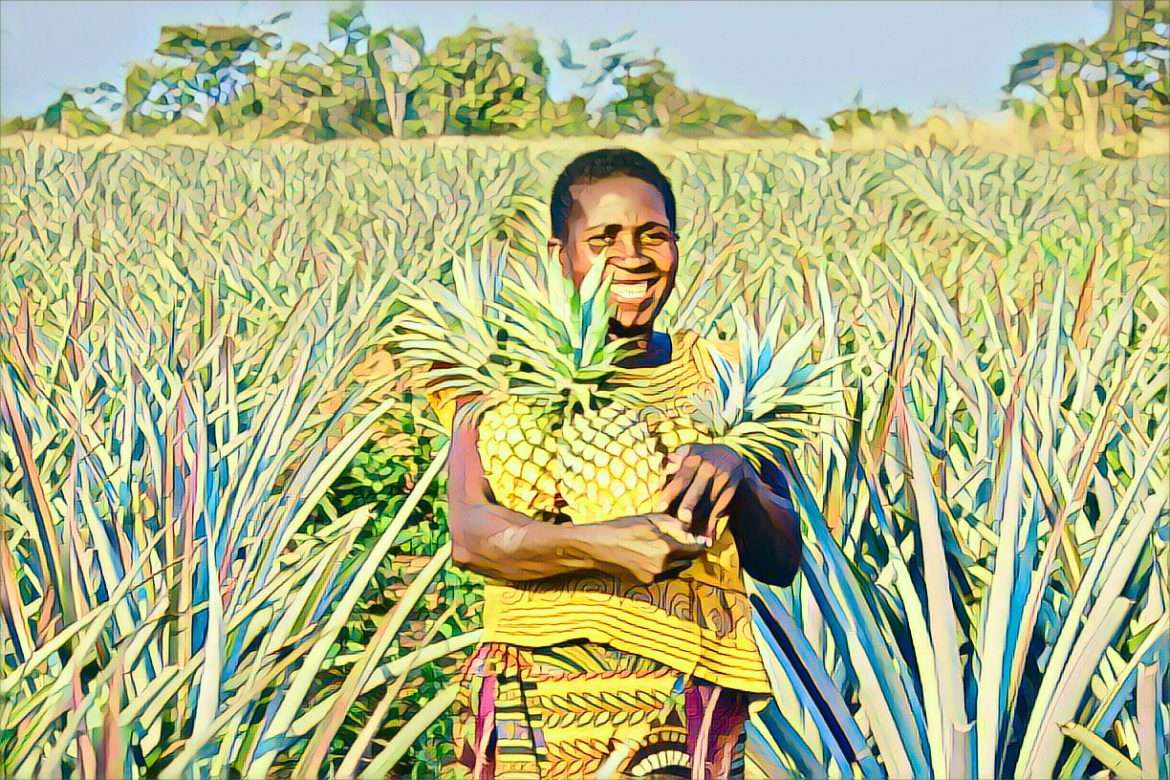At 5 a.m., the chirping birds signal the start of another day. Rhodah Munderedza, from Nyabamba Village, Chimanimani, is already awake. Dressed in a work suit and gumboots, she’s ready for her daily task of pineapple farming.
Munderedza, an environmental health technician by profession, found her passion in farming. “Farming must be part of one’s wish list to succeed,” she said. “Anything done without love becomes laborious.” Her commitment to pineapple farming is evident as she swaps long nails and earrings for practical attire.
In 2018, Munderedza secured a three-hectare piece of land but wasn’t sure how to use it. Financial instability added to her uncertainty. However, she embraced pineapple farming in 2022. “We planted the first batch without professional guidance,” she said. Through Google searches, books, and advice from local farmers, she learned the ropes.
Now, Munderedza employs two full-time workers. “In pineapple farming, where formal training is absent, one is always a student,” she said. “It’s been one-and-a-half years, and the project is starting to yield returns, though still modest.”
Despite the challenges, she feels proud of her progress. “Growing pineapples correctly in an area where it’s rarely done is an achievement,” she said. Anticipating a bumper harvest, Munderedza hopes to improve her life.
Advertising her produce on social media, especially Facebook, has garnered orders from the Netherlands and Zambia. “Social media has been instrumental,” she said. Remarkably, she hasn’t faced issues with common pineapple pests or diseases.
Currently, Munderedza has 13,810 pineapple plants. Each plant bears one fruit in its first or second year. “I sell each fruit at US$0.50 in Mutare or Harare,” she said. “I expect to earn over US$6,905.” Given that a pineapple plant produces two fruits a year and up to six suckers, her potential annual earnings could exceed US$35,000.
However, she faces significant challenges. “I need funds to boost the project and install a perimeter fence,” she said. Theft and wild animals pose threats to her crops. Additionally, boreholes and irrigation equipment are necessary for year-round farming, especially in winter.
Transportation is another hurdle. “Pineapples are perishable and fragile, so a truck is essential for transporting them to the market,” she said. Despite these issues, Munderedza remains optimistic. She aims to retire early and expand her farm to 10 hectares within the next decade. Diversifying into other fruit trees like apples, peaches, and grapes is part of her plan.
“I envision myself adding value to my fruits by making dried products and juice,” she said. “I also hope to create jobs for more than ten people and acquire trucks for transportation.”
Munderedza is determined to give back to her community. “I want to support struggling farmers, especially women and youth,” she said. Pineapple farming, if supported by the government, could transform the livelihoods of smallholder farmers by bringing in foreign currency.
Shadreck Makombe, president of the Zimbabwe Commercial Farmers Union, acknowledged the need for more support. “We haven’t done enough, but we have strategies to assist pineapple farmers,” he said.
Pineapples offer numerous health benefits. They contain bromelain, an enzyme with anti-inflammatory and pain-relieving properties. It helps with infections, injuries, and joint pain. The vitamin C in pineapples also reduces inflammation.
Munderedza’s journey in pineapple farming highlights the potential for agriculture to change lives. With passion and support, she believes in achieving even greater success.
Source: Newsday


